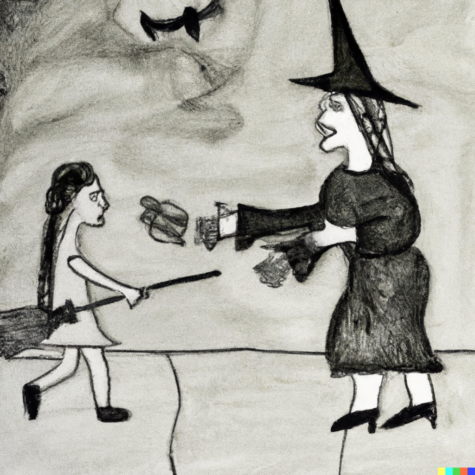The New York Times columnist Jessica Grose has a plea for all of us adults: Stop Micromanaging Halloween. It’s a trend that’s been growing like the Great Pumpkin ever since from back when *I* was a kid being warned about poison candy. (The number of kids poisoned by a stranger’s candy in all that time? Zero.)
But over the decades, the meddling has only gotten much more intense. There’s the new-ish phenom of the “Switch Witch” — guess who gets to play that role? She lets the kids choose a few precious pieces of their loot then swaps out rest for copies of “Pilgrim’s Progress.” (Almost — “she” swaps them out for a toy so the kids feel loved, and so do their teeth and endocrine levels.)
But there’s also so much more:
It seems like every holiday — even the ones that are supposed to have a heavy component of unsupervised mischief — is dominated by increasingly baroque and expensive parent-led rituals. Because it’s not just the Switch Witch, it’s “Boo”-ing your friends and neighbors — creating gift bags that you leave on their doorsteps with instructions that they must “Boo” other people. I’m sure there are other trends that I don’t even know about yet because I aggressively curate my Instagram feed to be ignorant of them.
Grose quotes a Washington Post columnist who wondered: “When did Halloween turn into a week long extravaganza with elaborate homemade costumes, multiple parties and parades, all chaperoned by parents?”
The bigger questions: When did most of childhood become adult-chaperoned? And what is that doing to kids?
Grose then — bless her — turns to my Let Grow co-founder Peter Gray and the recent Journal of Pediatrics article he lead-authored, which outlines how dwindling independence is making kids anxious and depressed:
Sixty years ago, children were allowed to do much more on their own from a young age. They walked or biked to school in elementary school; they were allowed to babysit or have paper routes by 11 or 12. There was less homework and youth sports hadn’t quite morphed into today’s youth sports industrial complex, so kids had more unstructured time to be outside and make their own fun, away from adults.
[The Pediatrics’ authors] theorize that a lack of independent activities negatively affects a child’s internal locus of control. “Internal LOC refers to a person’s tendency to believe they have control over their life and can solve problems as they arise, in contrast to external LOC, which is a tendency to believe their experiences are ruled by circumstances beyond their control,” they explain. When children aren’t allowed to do things on their own, they may have a weaker internal LOC, and that is “highly predictive” of certain levels of anxiety and depression.
Just like any of us who are micromanaged.
“There’s a logic here that I think makes perfect sense and I want people to understand it,” said Peter Gray, a research professor at Boston College and the study’s lead author… Which is that you’re taking away the opportunity for kids to have control over what they’re doing, “Because you are always controlling them. They’re always in school or they’re in school-like activities or they’re at home and not allowed to go out and do things on their own.”
Solution, at least at Halloween? Teach your kids to look both ways before crossing the street. Cars are the biggest threat on Halloween, not strangers or razor blades.
Then, once they’re 7, 8 or 9, they can do that activity that is the most thrilling thing in their young lives: Be adults! They dress up and go to “work,” cold-calling on neighbors for candy. It’s the ONE NIGHT we let kids have a taste of independence and if we keep taking it away, the Switch Witch will swap out happiness for anxiety.
Boo! (Hoo.)




4 Comments
I use the Switch Witch for my son, but not for the reasons in the article. I’m severely allergic to certain types of candy and can’t have those types of candy in the house. Plus, my son isn’t a huge fan of sweets and would rather have the toy instead. The switch witch was originally created so kids with food allergies could still participate in Halloween and get an allergy friendly treat at the end of the night. It might have been coopted by parents who are anxious about their kids having candy, but that was not the original intent.
Absolutely agree! Halloween should be a time for kids to have some unstructured fun and independence. Micromanaging every aspect of the holiday takes away from the excitement and creativity that comes with trick-or-treating and enjoying simple, spooky fun. Letting kids have more control over their activities can indeed boost their confidence and sense of autonomy. As you rightly pointed out, teaching them safety skills, like looking both ways before crossing the street, is more important than overprotecting them from unlikely dangers.
Absolutely agree!
I would be willing to bet that all the parents who micromanage Halloween for their kids have fond memories of themselves going out alone or with a group of friends to trick or treat. To say it’s different now is a cop out. They’re just control freaks and their kids are going to end up in therapy for years to deal with the anxiety caused by the prison like environment they were raised in.